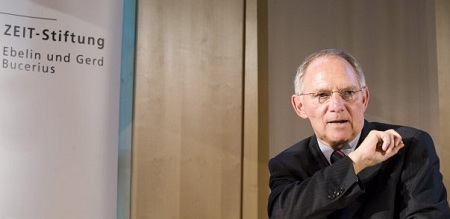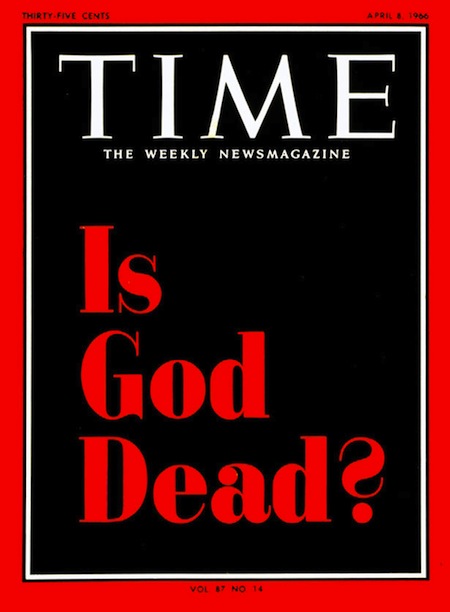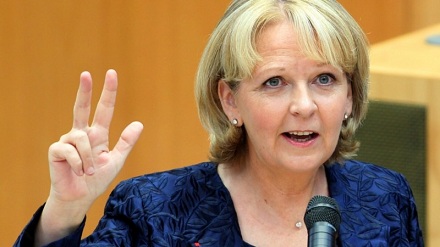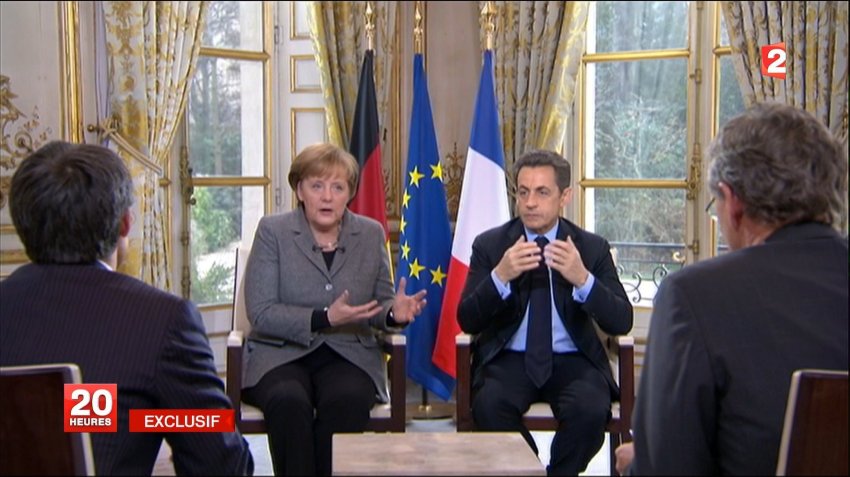I am also a week late to this — but it should be noted that Wolfgang Schäuble turned 70 last week, and it’s been an opportunity for the German media to reflect on a man who’s been a “big beast” (to steal a term from the UK’s Kenneth Clarke) of German politics.![]()
The Guardian called him “the politician who has done more to shape contemporary Germany and Europe than anyone else currently in office in the EU.”
Schäuble, a lion of the Christlich Demokratische Union Deutschlands (CDU, Christian Democratic Union), has been a member of the Bundestag, the lower house of Germany’s parliament, since 1972. He served as a key ally of chancellor Helmut Kohl during Kohl’s reign from 1982 to 1998, including as minister of the interior and chair of the CDU in the Bundestag in the 1990s, leading negotiations on behalf of the Federal Republic of Germany (i.e., West Germany) for reunification with the German Democratic Republic (i.e., East Germany). He, alone among the current German government, was present in 1992 when the Maastricht Treaty brought the single currency into existence.
Kohl, however, refused to cede the limelight to Schäuble — the CDU lost the 1998 election and Schäuble himself was implicated in a party funding scandal in 2000. By the time that the CDU regained power, it was under Angela Merkel and not Schäuble. The falling-out between Kohl and Schäuble was so acrimonious that even today, Kohl refuses to take part in the many celebrations of Schäuble’s 70th birthday.
In 2004, Merkel refused to nominate him for the largely ceremonial role of the German presidency, another rebuke to a man who was all but assumed to be, at one time, a future chancellor. But Merkel’s relationship to Schäuble has taken a different turn than his relationship with Kohl. Schäuble, who served again as interior minister during Merkel’s “grand coalition” government from 2005 to 2009, has now served as finance minister since 2009.
As such, Schäuble, who has been paralyzed and uses a wheelchair since a 1990 assassination, at age 70, is arguably at one of the most engaged — and vital — points of his lengthy career in public service.
In the past week alone, he’s been talking up a plan to leverage the European Stability Mechanism, boosting the value of the euro when he said the currency’s salvation was “worth any effort,” and throwing cold water on the idea of a European bailout for Spain (picking a subtle fight with France while doing so). The week before, he got into a row with Jens Weidmann, the president of Germany’s Bundesbank (Germany’s central bank) — Weidmann has opposed the move for the European Central Bank to buy the debt of eurozone countries directly.
It’s safe to say that he is second only to Merkel herself and European Central Bank president Mario Draghi in his centrality to determining the future of the euro. Big beast, indeed.
When I think of Schäuble, I can’t help but also think of Clarke — if Clarke is a One Nation Tory, I think of Schäuble as a kind of One Nation Christian Democrat.
- They both entered politics in the early 1970s, and rapidly became rising stars.
- They both served as finance minister (in the UK, Clarke served as chancellor of the exchequer, which is the equivalent) in times of currency crisis — Clarke in the wake of the 1992 sterling crisis and Schäuble today, during the eurozone crisis.
- They both watched their leadership prospects crumble away as their parties passed them over for a new generation (Merkel, in the case of Schäuble, and David Cameron and others, in the case of Clarke).
- And they have both been, despite right-wing pressures from their respective parties, champions of the European project throughout their careers.
For better or worse, whatever the solution to the eurozone crisis, it seems nearly certain that Schäuble will be among its authors.







